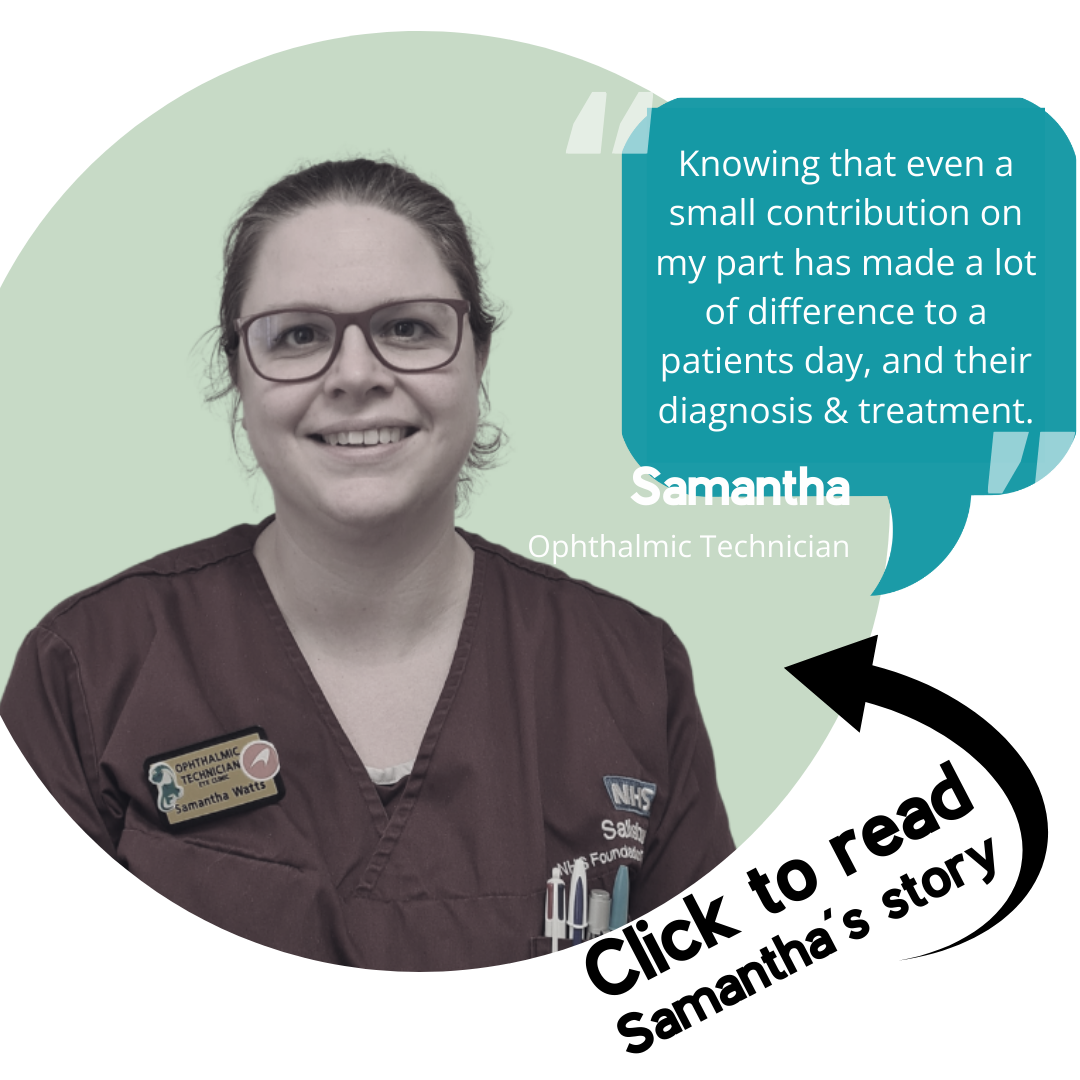How do I become an orthoptic clincial assistant?
If you are a people person and are interested in a career in healthcare, then becoming an orthoptic clinical assistant could be for you!
As an Orthoptic Clinical Assistant, you will see patients of all ages, with a wide range of conditions affecting their vision.
The majority of the support workforce are employed by the NHS and work in either Hospitals or the community. They can be employed under a number of different job titles, including support workers, clinical assistants, or technicians.
What’s it like being an orthoptic clinical assistant?
As an orthoptic clinical assistant you may be involved in:
- Assessing the vision of patients, including those who may have communication difficulties, and undertaking specific tests and Ophthalmic imaging for general and specialist clinics.
- Assisting patients by providing reassurance, information, and guidance and correctly and safely position patients during testing and treatment.
- Undertaking vision screening in schools and pre-schools.
- Contribute to audits, service evaluations and quality improvement, including making recommendations for and supporting change within the service.
You may specialise in one area and undertake extra training to develop a special interest in that area.
You may have the opportunity to become involved with undergraduate students who are undertaking a clinical placement or training.
You may also choose to undertake courses to develop in leadership or management skills
Orthoptic clinical assistants can play a vital role in staffing child vision screening services in schools. These pick up reduced vision in children, making early diagnosis and treatment possible.
Why join the orthoptic support workforce?
I’m interested, how do I become one?
It is desirable, but not essential, that clinical assistants should possess at least GCSEs A-C (9-4) (or Scottish National Level 3 qualification) and have had previous experience dealing with people, for example in a customer care role or through volunteering, and/or work experience in a healthcare setting or through lived experience. It is also beneficial to possess some basic digital skills. If you do not possess these qualifications you will be willing to acquire them once employed.

